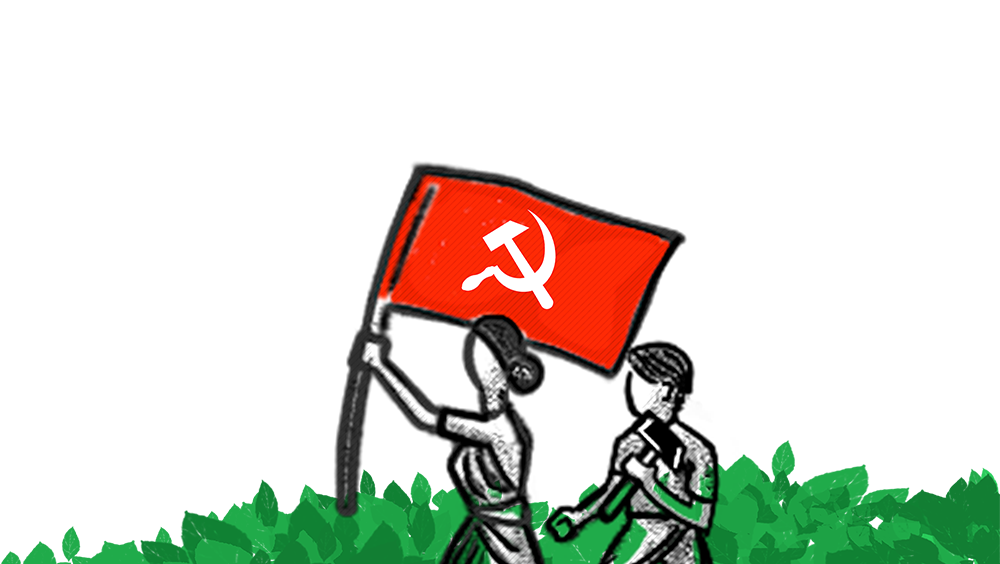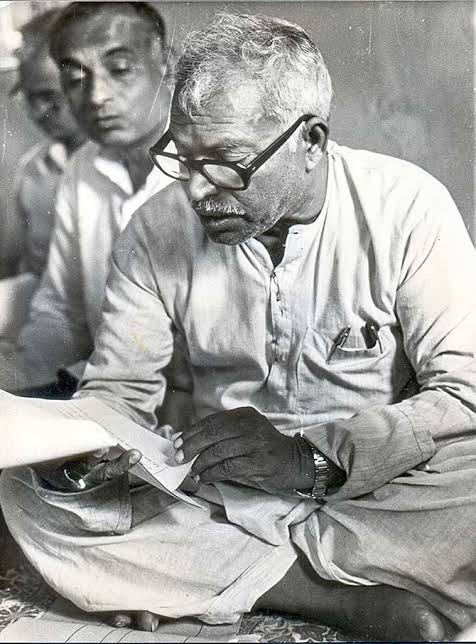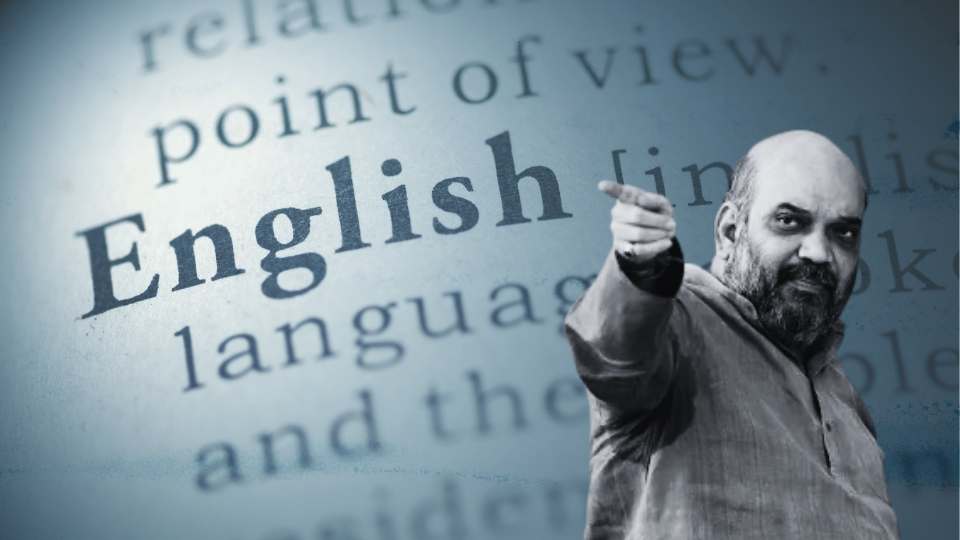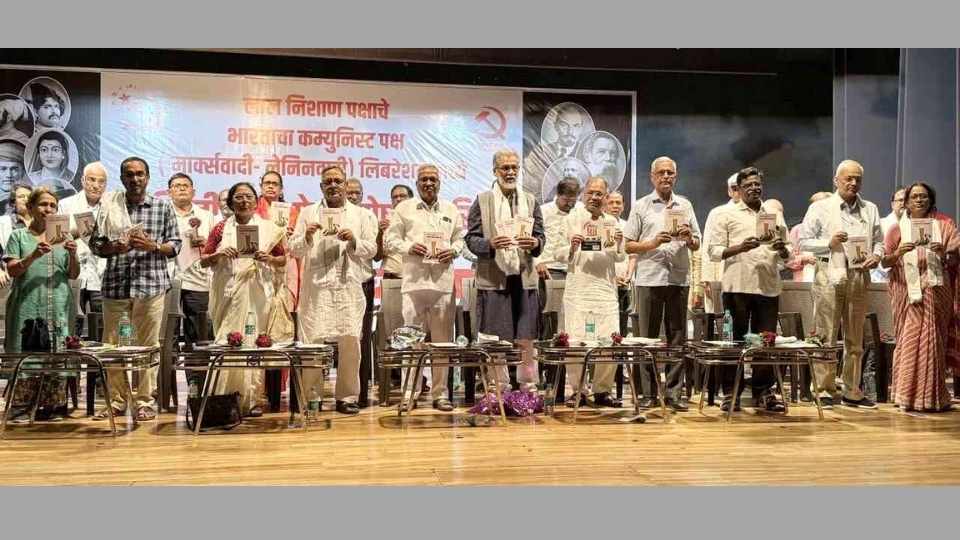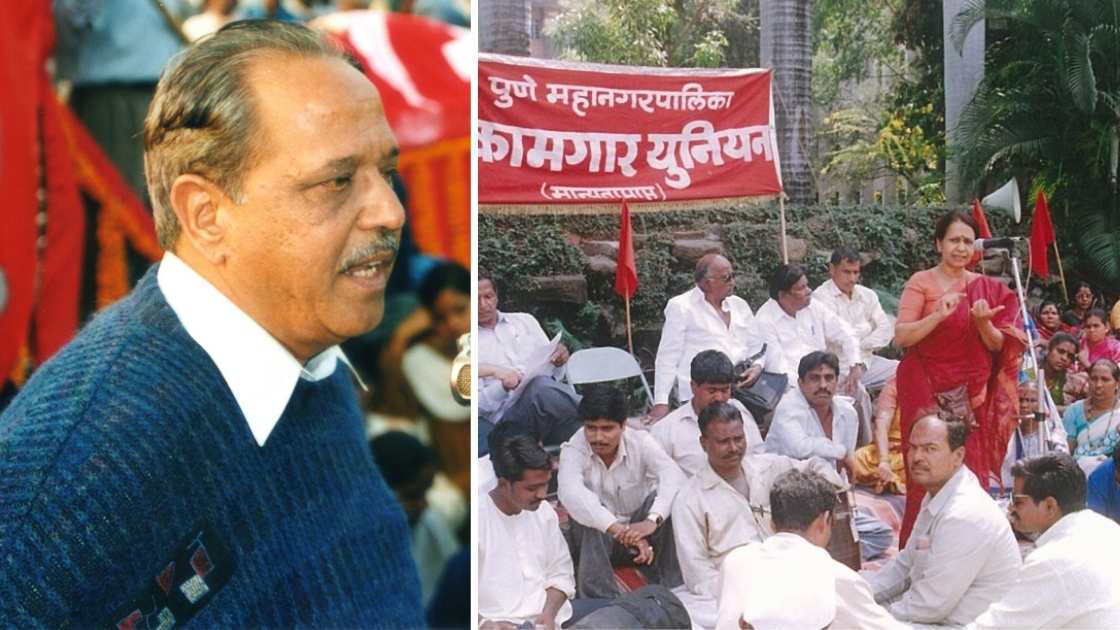Karpuri Thakur was indeed a people’s leader- a visionary. Be it the street or the Vidhan Sabha, whether in power or not, he was a people’s committed fighter for social justice. But that is not all that defined him. He was well aware of the fact that in a society riddled with extreme injustice, the extent to which the deprived could get justice was limited. A study of his biography and lectures as well as his accomplishments would reveal the interwoven strands of social justice and social change in his ideology. This fact has attracted less attention than it deserves. As we celebrate his birth anniversary, special attention needs to be paid to this aspect of his ideology to bring forth its distinctiveness. A fitting response can be offered to the challenges that the nation faces by revisiting his ideological framework.
The work done by him in the fields of language, education and reservations, that went a long way in empowering the weaker sections in social and economic terms are all well known. After becoming the Chief Minister, he issued appointment letters to 10-11 thousand engineers in Gandhi Maidan, thereby providing an impetus for employment generation. He considered education and reservation as important tools for achieving social justice. No wonder, he faced the wrath of the reactionary forces on many occasions. He resisted these attacks, lost power but remained steadfast on his mission. His policies and programmes paved the way for establishing a unity of backwards, most backwards and Dalits as well as poor people of upper castes in Bihar. These initiatives had the potential to change the fate of Bihar. Unfortunately, this process could not continue for long.
Nowadays, the aspect of social justice is viewed within the framework of reservation. Karpuri Thakur’s thoughts went far beyond this narrow vision. He yearned to change the structure of the society that was based on injustice. No wonder that when the Dalits and poor in Bihar’s hinterland faced feudal oppression and attacks, he openly advocated for arms to the oppressed for their self-defense. The 80-90’s were the decades when the politics of Bihar was marked by a historic mass awakening of Dalits and poor and a severe backlash and counter attacks in response. During his chief ministership he ordered the release of all Naxalites languishing in prison. Very few in the Samajwadi camp had the distinction of openly standing with these movements. He would visit the IPF office at any time and discuss common strategy for various struggles.
After the infamous Arwal massacre in 1986, there was a historic gherao of the Vidhan Sabha led by IPF. A severe lathi charge and arrest of activists ensued. In protest, he sat on a dharna inside the Vidhan Sabha till the activists were eventually released. Similarly, in 1988, the then Central Government proposed 59th amendment which was opposed by IPF by calling for a Bihar Bandh. Karpuriji gave his open support for the Bandh. He was always at the forefront when it came to oppose oppression of any kind. Many such anecdotes can be recalled which distinguish him from other leaders.
It is impossible to conceive of social transformation in Bihar without the centrality of land reforms. He tried to move forward in this direction but the well-entrenched bureaucracy and anti-land reform forces placed umpteen obstacles in his path. Whatever may be his limited contribution to land distribution, it deserves to be applauded. To address the issue of land tenancy in Bihar, it was planned to have a survey and he took substantial initiatives on this matter. It was during his regime that some efforts were made for survey in the Kosi area but they could not make much headway.
It is an irony of history that the broad unity between the socialists and Communists in the era of anti-Congressism could never see the light of the day. A section of the socialists sided with the communal forces. It is often assumed that in India, the socialist and communist streams are distinct with no overlap between them. Historically, there has been a divergence between the two although both these streams place the liberation of the oppressed as their paramount goal. Karpuri Thakur always strove to tear apart this boundary between the two streams. Today, when the country is in the grip of the fascist BJP-RSS combine, democracy and the constitution are under attack, efforts are underway to establish an opposition-free democracy and the country is witnessing a frenzied campaign to turn the country into a Hindu state, the ideals of Karpuri Thakur become all the more relevant. Had he been alive, he would have harnessed all his strength to form a broad unity of social forces to save the constitution and democracy.
It is welcome to note that a positive intervention has been made in this direction in Bihar and a broad coalition against BJP has taken shape. This has aroused a sense of hope in the country. At this crucial juncture of our country’s polity, the broad vision of Karpuri Thakur makes him more relevant today. Let us imbibe the basic values of Karpuri Thakur’s politics and march forward to form a broad coalition of fighting forces for saving our country.
Note by Comrade Dipankar on Karpoori Thakur
Bharat Ratna for former Bihar CM Karpoori Thakur is a most appropriate, though belated, announcement for the great socialist icon. A lifelong champion of the oppressed and a crusader for social equality, political liberty and comprehensive justice, Karpooriji was not just one of the pioneering architects of the policy of reservation for the oppressed, he will also be remembered as an inspiration for democracy for the deprived.
As CM of Bihar after the Emergency, he was instrumental for the release of many political prisoners including those arrested on charges of being Naxalites. In this photo which is one of his most viral images on internet he can be seen sitting next to Comrade Nagbhushan Patnaik, President of Indian People's Front, who was released on indefinite parole after the Emergency thanks to the pressure exerted by socialist leaders like Karpoori Thakur.
After the 19 April 1986 Arwal massacre when 21 unarmed people attending a public meeting demanding land to the tiller were gunned down by the police Karpooriji as leader of the opposition in Bihar Assembly fought relentlessly for justice for the victims of this reenactment of Jallianwalabagh massacre in free India. When Comrade Nagbhushan was detained by the police for leading a gherao of the Bihar Assembly in August 1986 demanding justice for the Arwal massacre victims, Karpooriji echoed that demand within the Assembly.
If alive in this Modi era, Karpoori Thakur would surely have been dubbed an 'anti-national andolanjeevi' and jailed under UAPA for leading the farmers' movement just as Babasaheb Ambedkar would have been termed a Hinduphobe and anti-Ram for advocating caste annihilation and embracing Buddhism with his famous 22 vows rejecting idol worship.
A great champion of socialist-communist unity, Karpooriji would have been leading us today in the battle for saving the Constitution and foiling the fascist assault on India's secular fabric. It is the responsibility of the broader secular democratic camp, especially socialists and communists, to carry forward the inspiring legacy of Jannayak Karpoori Thakur when the constitutional framework of secular democracy and the spirit of socialism and social justice are facing an unprecedented attack by the fascist forces in power. We shall fight, we shall win!

